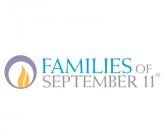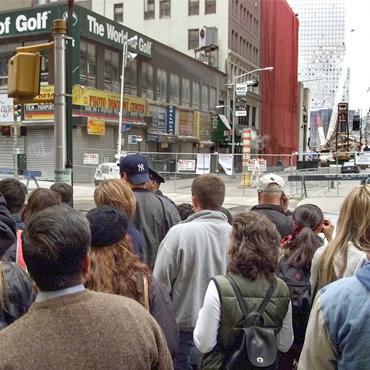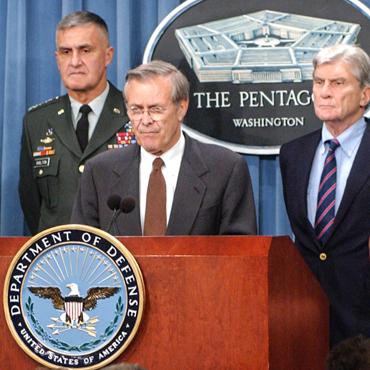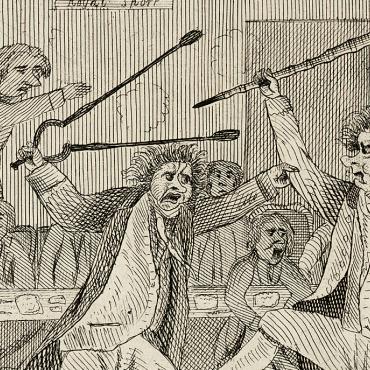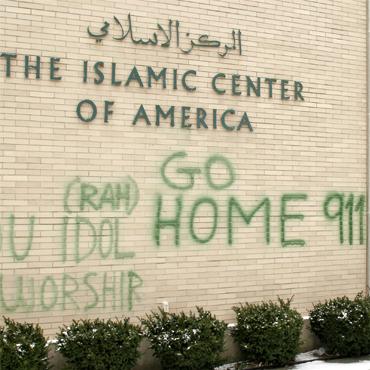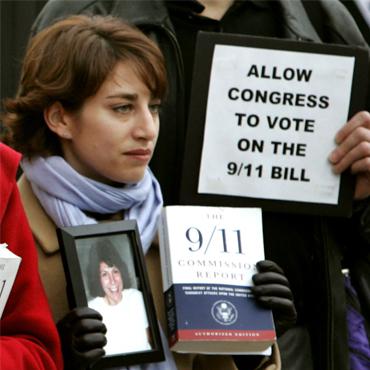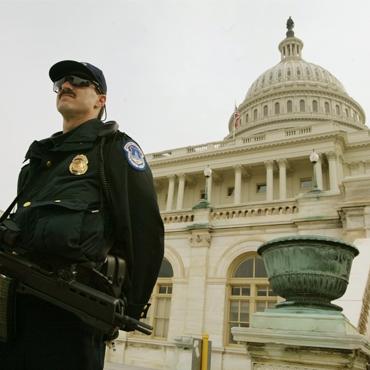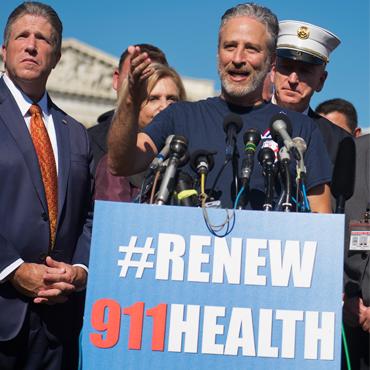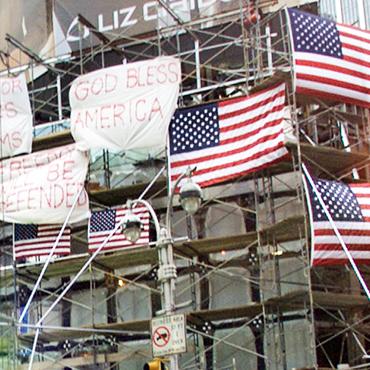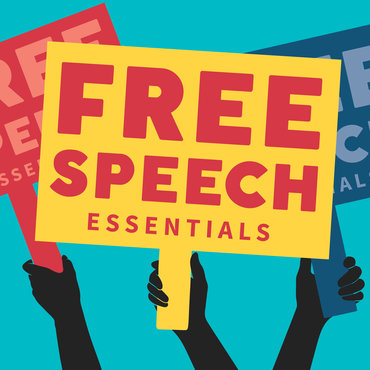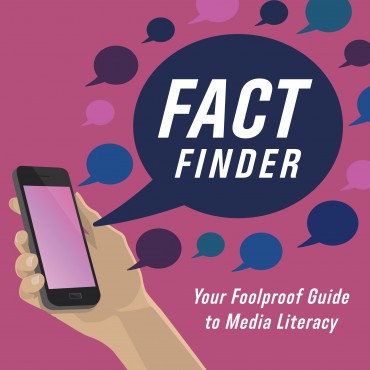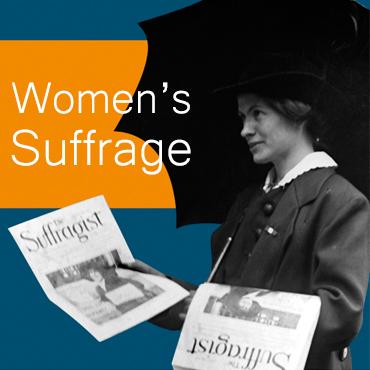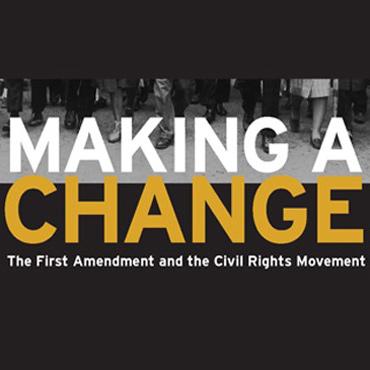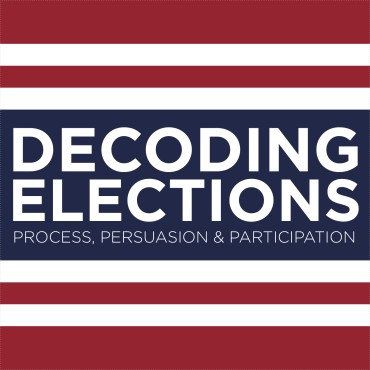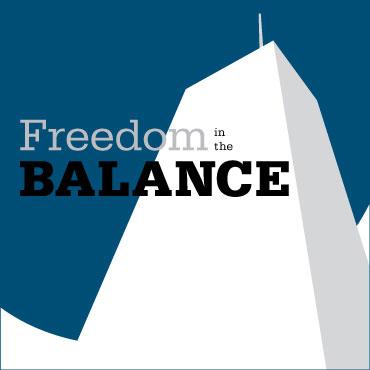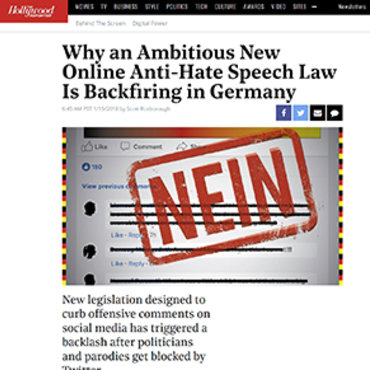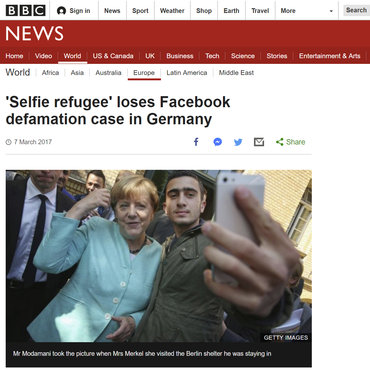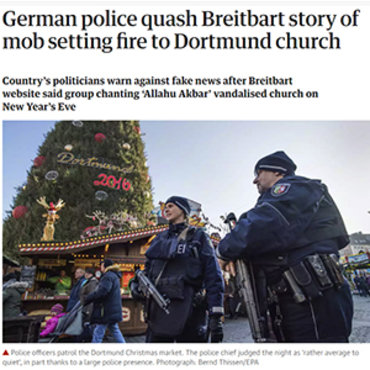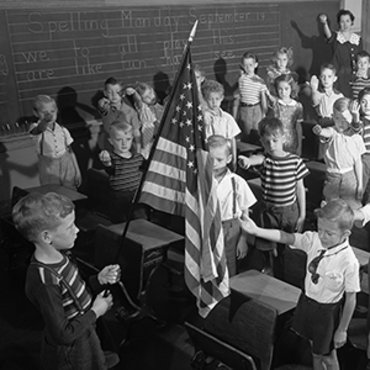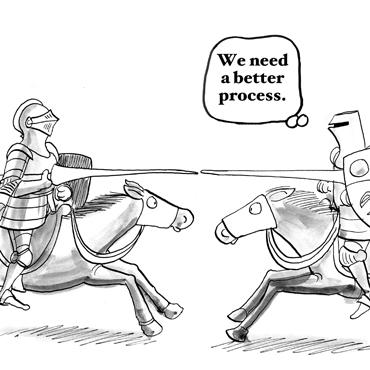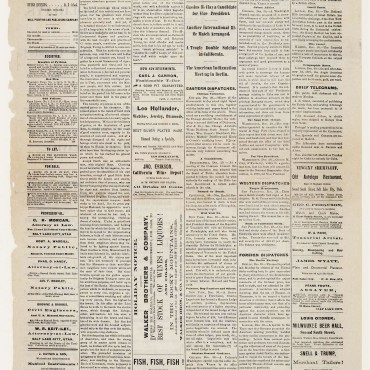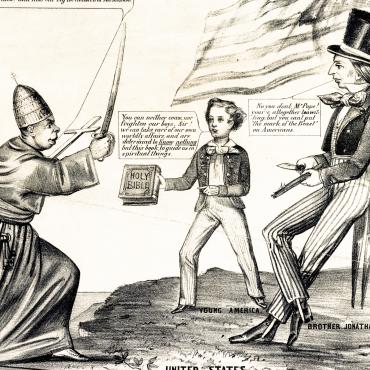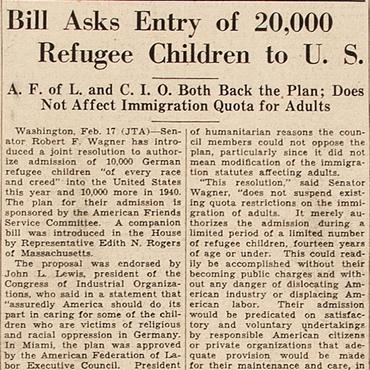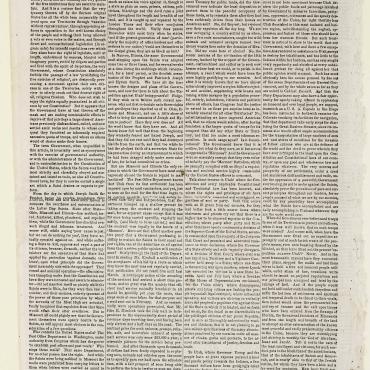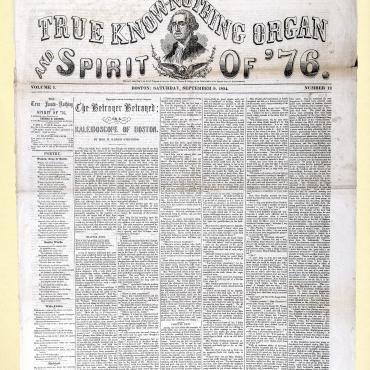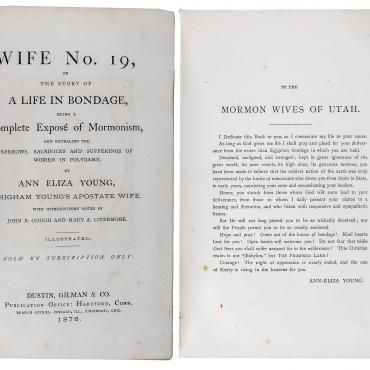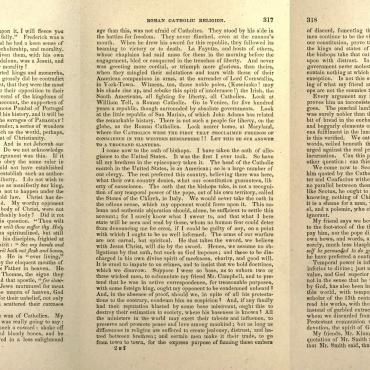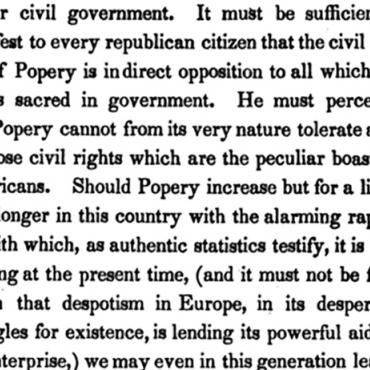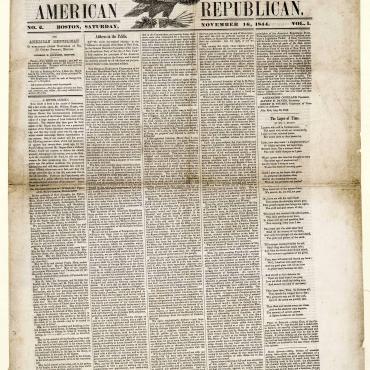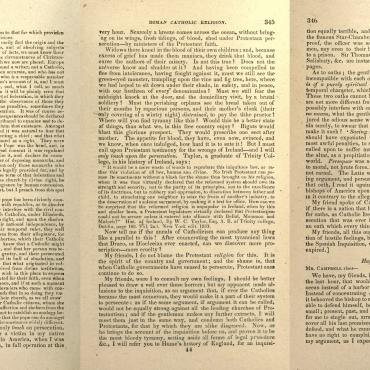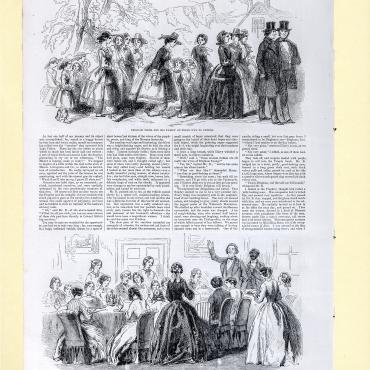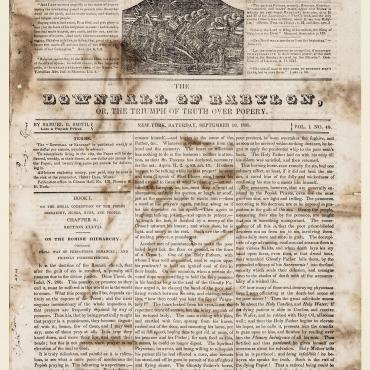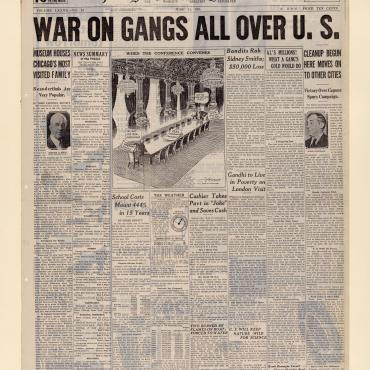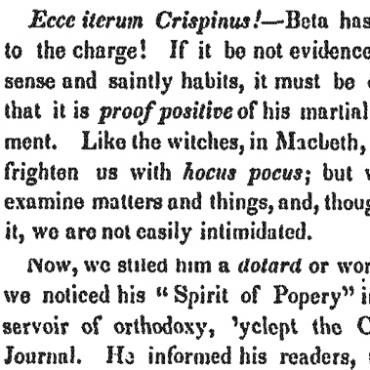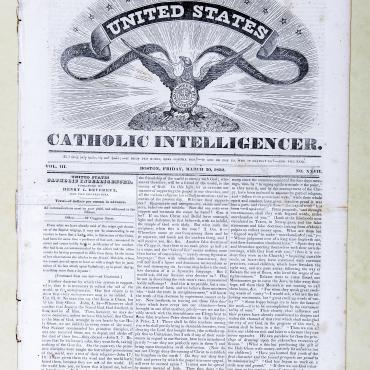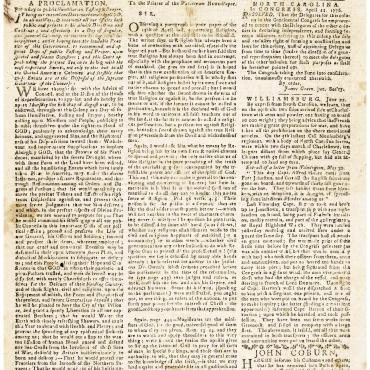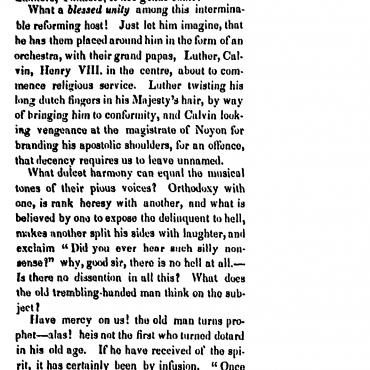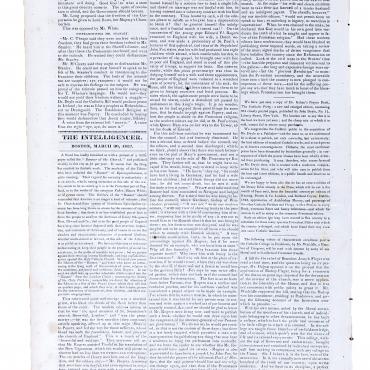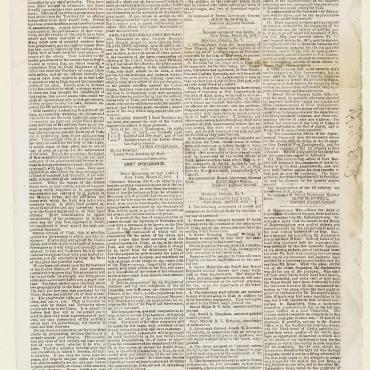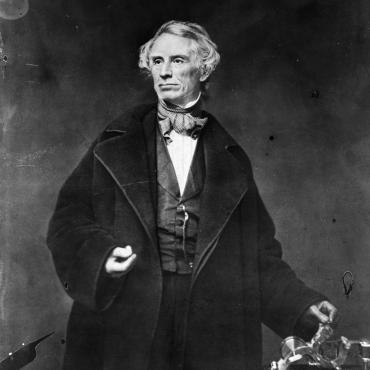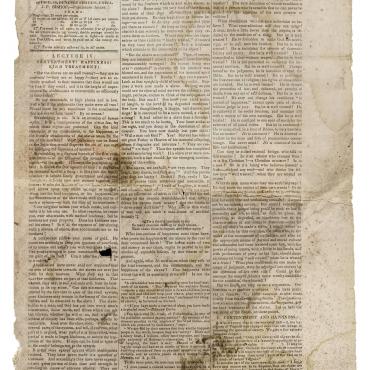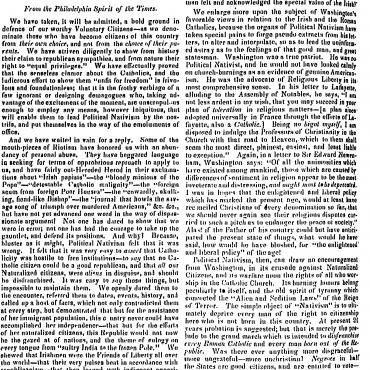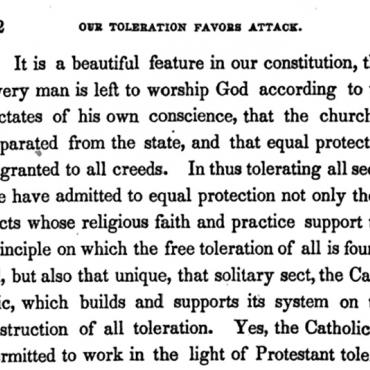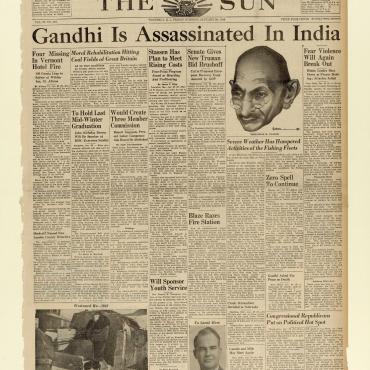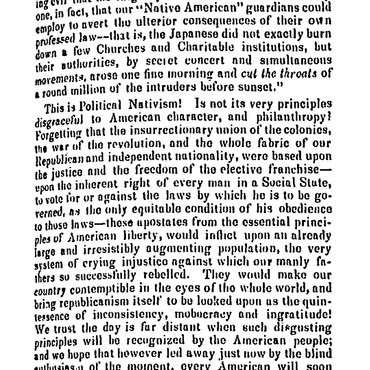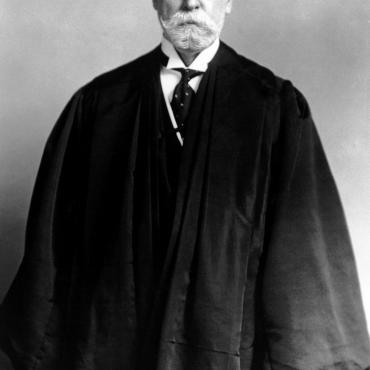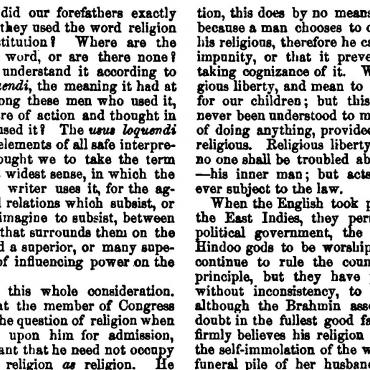2015: Controversial Transit Ads Attack Islam
Should cities block anti-Muslim ads from being purchased to display on public transit?
Get even more great free content!
This content contains copyrighted material that requires a free NewseumED account.
Registration is fast, easy, and comes with 100% free access to our vast collection of videos, artifacts, interactive content, and more.
NewseumED is provided as a free educational resource and contains copyrighted material. Registration is required for full access. Signing up is simple and free.
With a free NewseumED account, you can:
- Watch timely and informative videos
- Access expertly crafted lesson plans
- Download an array of classroom resources
- and much more!
This Critical Debate is part of a Debate Comparison:
See all Debate Comparisons- Politics
- Religious Liberty
- 9-12
- College/University
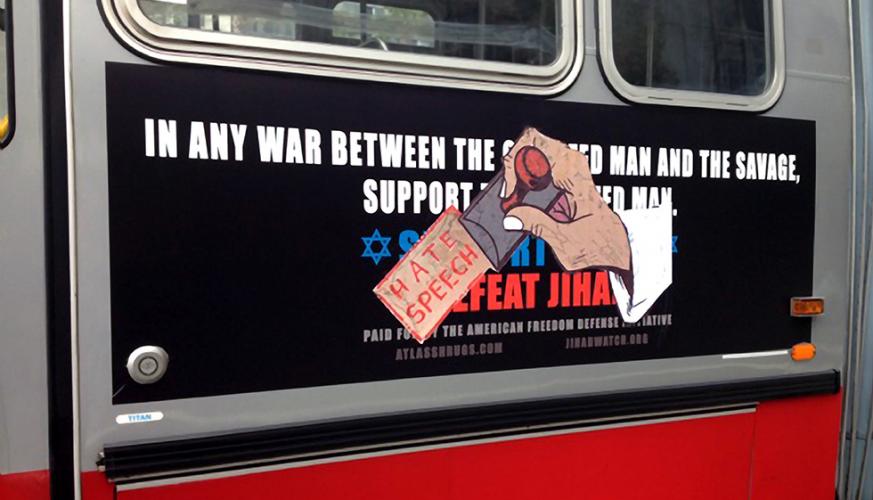
Under the sticker, the ad reads, "In any war between the civilized man and the savage, support the civilized man. Support Israel. Defeat Jihad."
Looking Back: 9/11 Connections
Use the artifact viewer to explore the image below and discuss the following questions:
- What happened/is happening in this image? What story does it tell?
- How is this image connected to the events of Sept. 11, 2001?
- How could you use this image to make an argument about the state of freedom in the U.S.? About national security?
Should a political group be allowed to run ads against a religion based on the words and actions of a few extreme followers?
You are an adviser to the mayor of a major U.S. city. The mayor has asked for your advice on how to respond to the controversy surrounding a proposed bus ad. The ad portrays Islam and its followers as violent people who target Jews. It is being paid for by an organization that says it defends human rights, but it has also been labeled an anti-Muslim hate group. A judge has ruled that there is no evidence that displaying the ad on city buses will lead to acts of violence, and that the city cannot ban the ad simply because it portrays a specific religion in a negative light. The judge says the First Amendment protects even offensive or hateful messages.
What do you advise the mayor to do?
-
Allow the ad to be placed on buses.
The First Amendment clearly protects even offensive speech, and fighting the ad only draws more attention to its hateful message.
-
Allow the ad to be placed on buses, but use the proceeds to present a counter-narrative.
A series of city-sponsored advertisements could showcase the city’s diverse communities and residents.
-
Create a new policy that bans all ads dealing with politics or social issues.
Public transportation is not a suitable place to debate religion or other controversial issues, and this is the only way to avoid violating the First Amendment because it doesn’t target a specific viewpoint.
-
Stop selling all advertising on city buses, and replace the lost ad money with a small gas tax increase.
Allowing any advertising opens the door for controversy, as those who see the ads on city buses may presume that the city approves of their content.
-
Something else.
Explain your idea.
- Does speaking out against a religious group infringe on that group’s freedom of religion? Why or why not?
- Should city leaders attempt to avoid this type of controversy? Should they embrace it and attempt to shape the conversations that follow?
- Who sees the advertisements on buses? How might children react to this ad? Muslims? Jews? Should the audience affect what type of speech is or isn’t allowed?
- Who should decide what is or isn’t appropriate for an advertisement on a city bus?
- Do you think an ad like this one could present a security risk? If so, why and to whom? If not, why not?
Have students use the Analyzing Evidence and Making Your Argument handouts to collect and organize additional information about the case, then form an argument supported by evidence. Give groups 30 minutes to prepare, or assign as homework. (Note: Students may wish to organize their sources and evidence using a spreadsheet, such as Google Sheets.)
-
Common Core State Standards: CCSS.ELA-LITERACY.CCRA.SL.3
Evaluate a speaker's point of view, reasoning, and use of evidence and rhetoric. -
Common Core State Standards: CCSS.ELA-LITERACY.CCRA.SL.4
Present information such that listeners can follow the line of reasoning and the organization, development, and style are appropriate to task, purpose, and audience.
-
NCSS C3 Framework: D4.1.6-8 and D4.1.9-12
6 - 8: Construct arguments using claims and evidence from multiple sources, while acknowledging the strengths and limitations of the arguments. 9 - 12: Construct arguments using precise and knowledgeable claims, with evidence from multiple sources, while acknowledging counterclaims and evidentiary weaknesses.
-
ISTE: 7d. Global Collaborator
Students explore local and global issues and use collaborative technologies to investigate solutions.
-
National Center for History in the Schools: NCHS.US History.Era 10
Standard 1: Recent developments in foreign policy and domestic politics Standard 2: Economic, social, and cultural developments in contemporary United States
-
Center for Civic Education: CCE.V
A. What is citizenship? B. What are the rights of citizens? C. What are the responsibilities of citizens? D. What civic dispositions or traits of private and public character are important to the preservation and improvement of American constitutional democracy? E. How can citizens take part in civic life?
